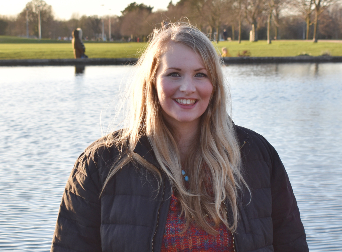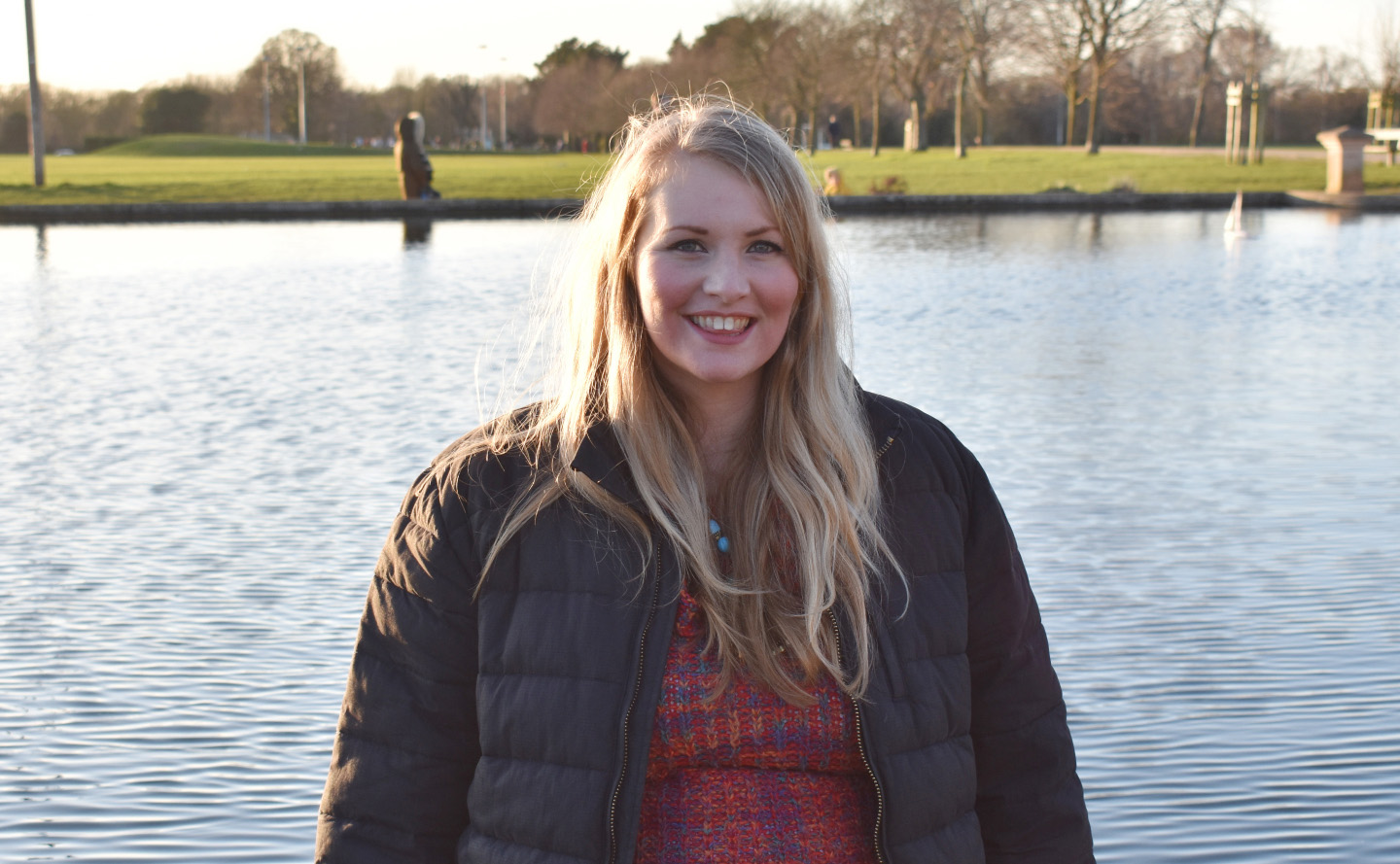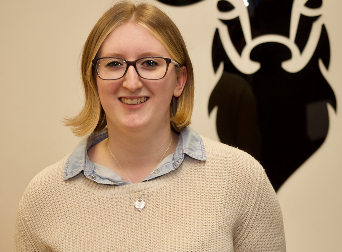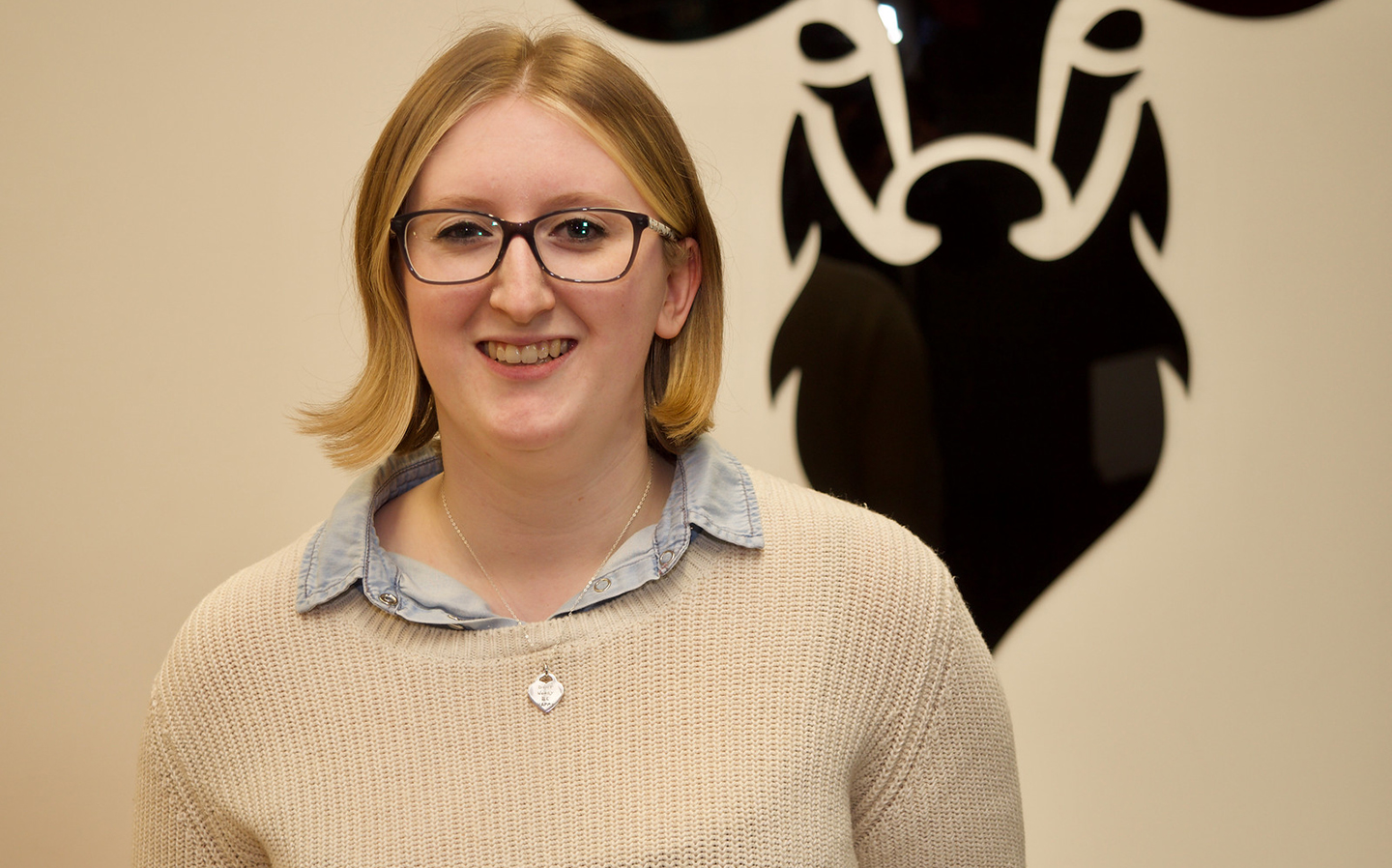Sign up for updates
Interested in studying at the University of Hertfordshire and want to sign up to our mailing list to learn more about our facilities, living in the UK and student life? Use the form below and our team will also keep you informed of key updates such as events near you, applications opening and more!
BA (Hons) Creative Writing and Digital Media
Key information
-
Typical offer:
Entry requirements -
Fees: See below
Full details -
UCAS code: P902
-
Institute code: H36
-
Study abroad option
-
Work placement option
Find out more
Why choose this course?
- Giving you up to date media skills and a great speaker programme
- Accredited by PRCA (Public Relations and Communications Association)
- Be taught by award-winning poets, writers and media practitioners
Find your voice, both critically and creatively, as you develop an in-depth understanding of the world of media. Today’s media is becoming more diverse and dynamic as digital and social media platforms thrive. Hone the skills you need to play your part.
Our practical course nurtures your hands-on technical skills, original creativity, and entrepreneurial attitude, giving you the versatility for a successful media career. You’ll develop the ability to critically comment on media practice and produce new creative work for websites, blogs, print, video, audio and multimedia. We’ll help you develop research, editorial, storytelling and targeting skills, building your confidence in creating, editing and submitting work.
You’ll learn about media both in the UK and internationally, starting with general modules such as Global Media and Telling Stories through Sound and Image, progressing to the opportunity to create your own media project with a client before you leave or studying how to create a PR campaign as well as the fascinating world of celebrity media.
You'll be taught by leading poets, fiction, and non-fiction writers. All your lecturers are active writers in their field - some are even internationally published authors. This means you’ll be learning from writers who have excellent industry connections and have the latest knowledge when it comes to trends, styles, and publishing guides giving you everything you need to become a published author yourself. Partner this with gaining the latest insights and skills within media, from podcasting to learning about PR.
You can take part in industry events and say your course is affiliated to the Public Relations and Communications Association (PRCA), one of Britain's top trade organisations for PR professionals. You can attend our Media Matters guest lectures given by a range of media speakers from top journalists to our recent graduates. You'll have the opportunity to network with inspirational and well-known screen writers, biographers, poets, novelists, nonfiction authors and playwrights at our Creative Conversation events.
What's the course about?
The delivery of teaching varies according to the characteristics of each module. Workshops are used for modules where the degree of practical skills taught is enhanced by the supervision of experts in their field but there are also seminars and lectures. Attainment of learning outcomes is also assessed in a range of formats from traditional essays to presentations, creating adverts or campaigns or working in a small group to create a documentary.
In the first year, you’ll study the media industry now and the theories of communication and globalisation that underpin it alongside gaining practical skills in visual awareness, blogging and video. In Creative Writing you’ll start learning how to become a writer and how to write for films, as well as gaining a deeper insight into genre.
In your second year, you’ll study the publishing industry, choose between brand awareness and creating a video feature, magazine design and design for mobile, while in Creative Writing, you’ll learn about the art of telling non-fiction stories and how to write for the stage.
Work placement/study abroad option*: Between your second and final year, you’ll have the option to study abroad or complete a work placement for up to a year. Not only will this give you an amazing experience to talk about, but it will also give your CV a boost. If you would rather go straight to your final year, that’s fine too. You can decide in your second year with us, so there is still plenty of time to think about this.
In your final year, you’ll get the option of specialising in practical media modules, such as creating a project for a client, or learning about the PR and Advertising industry or the theory of celebrity and identity within media. In Creative Writing, you’ll get the chance to specialise in either poetry, prose or scriptwriting and think about how writing and reality conflict and complement.
For a full list of modules, see the section under ‘What will I study?’
Guest speakers and networking (Media Matters and Creative Conversations).
Each year the School of Humanities hosts a range of industry professionals, giving talks on their experience in the media and publishing industry. These lectures are recorded by our final-year students and available on our Taster Hub. Some of our previous speakers have included:
- Andrea Thompson, Editor in Chief of Marie Claire
- Richard Keith, Journalist for Edge Magazine and Publisher, PCGamer
- Georgina Lawton of online ezine Gal-Dem for women and non-binary people of colour
- Damian Barr, writer, literary editor and TV host
- Steve Swann, investigative journalist, BBC
- Inua Ellams, poet
- Nell Leyshon, novelist and playwright
- Tom Edge, screenwriter
- Carl Rollyson, biographer
Your main campus is College Lane
This is where the creative arts, science and health-related subjects are based. This means you’ll share the campus with future nurses, scientists, artists and more. You can use the common rooms to relax with friends, work out in the 24-hour gym or have a drink in our on-campus pub or cafes. We also have restaurants for you to eat in or grab something on the go. Our Learning Resources Centres are open 24/7, which means you can study whenever suits you best. Want to pop over to the other campus? You can take the free shuttle bus or walk there in just 15 minutes.
What will I study?
Degree programmes are structured into levels, 4, 5 and 6. These correspond to your first, second and third/final year of study. Below you can see what modules you’ll be studying in each.

Alumni Stories
Kate Stephenson
Meet Kate Stephenson who has excelled in the publishing industry since graduating. She currently works as the Education Editor at National Geographic Kids magazine.
Read more stories BA (Hons) English Language and Media| Current job role | Education Editor |
|---|---|
| Year of graduation | 2013 |
| Course of study | BA (Hons) English Language and Communication with Journalism and Media Cultures |

University experience
Kate always knew that she wanted to work in the media and her unique degree gave her the flexibility to understand the logistics behind magazines as well as develop her writing and communication skills. The variety of topics and modules covered in her course enabled her to understand a lot about her dream career and enable her to develop valuable skills for working in the industry.
While studying, Kate took every opportunity offered to her. Her lecturers gave her opportunities to network with their colleagues for the industry enabling Kate to secure work experience and explore different career opportunities upon graduation.
She also worked as part of the Students’ Union student media, called Triden Media, writing regularly for their newspaper and magazine. Kate says, ‘Take advantage of every opportunity while it’s on offer and dive in as much as possible.’
The future
In the future, Kate hopes to further develop and grow the project she is working on at National Geographic and their educational content. One of her recent projects was launching their Primary School resource service by writing the curriculum.

Alumni Stories
Eleanor Pilcher
Meet Eleanor Pilcher who since graduating in 2016 has taken the publishing industry by storm. Eleanor currently works as a Marketing Manager at Avon, HarperCollins Publisher.
Read more stories Find out more about this course| Current job role | Marketing Manager |
|---|---|
| Year of graduation | 2016 |
| Course of study | BA (Hons) History and Creative Writing |

University experience and employability
Eleanor is a keen writer with great creative ambitions. During her degree she undertook a six-month internship at a literary agency in her final academic year. In 2016, shortly after her studies, Eleanor landed a placement at Penguin before getting a job in publishing recruitment. After developing her skills within the industry and amassing and impressive amount of knowledge and experience, Eleanor began her current role at HarperCollins Publishers.
Eleanor's degree encompassed a broad spectrum of critical, analytical and evaluative skills and helped shape her as a writer. Throughout her studies she had been writing a novel, which she submitted to literary agencies after being encouraged by her tutor to do so. It was Eleanor's passion for writing that uncovered her interest in working for a literary agency. Due to the fantastic lecturers on her course and the invaluable industry networks available to students, Eleanor managed to secure impressive opportunities in her chosen industry that have informed her career.
Sher recognises the impact the University has had on getting her to where she is today. 'For me the advice and feedback I received on both my History essays and Creative Writing finals was incredibly useful to my academic and professional development. I learnt to take criticism and to harness it and also write more because of it.'
Ambitions for the future
Eleanor has established herself in her chosen industry yet still has ambition to continue pursuing new goals. On her hopes for the future, she says: 'I hope to run a marketing department within a publishing company, possibly the one I'm at now. I hope to publish a novel and continue my freelance writing and public speaking on the side.'
